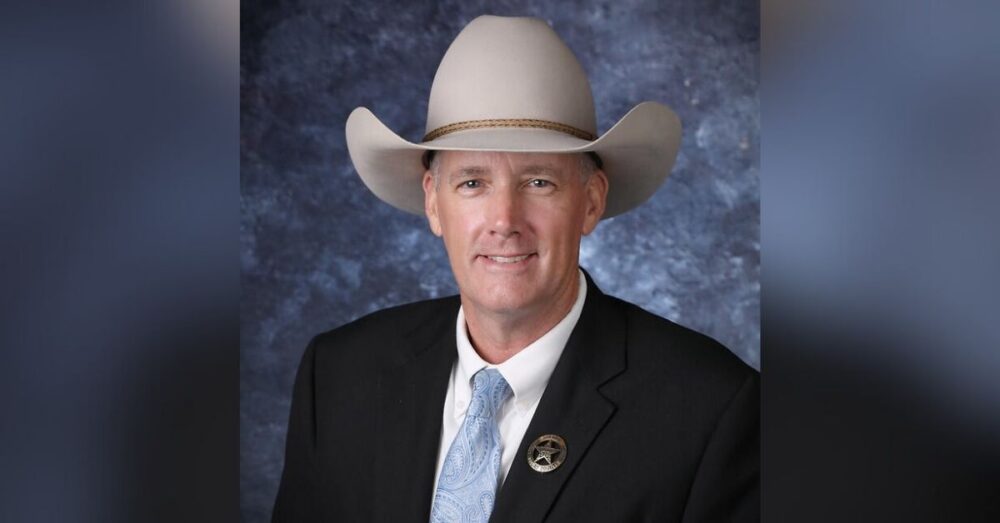(Texas Scorecard) – In front of a U.S. Senate subcommittee on border security, Goliad County Sheriff Roy Boyd delivered an urgent call for stronger state and local enforcement of national immigration laws.
Boyd, a law enforcement veteran with over three decades of experience in rural South Texas, provided firsthand testimony of the evolving challenges facing his county and others grappling with border security and cartel-driven criminal activity.
“In order to take the initiative in what can only be deemed as asymmetrical warfare against the cartels and their business partners, law enforcement must change their mindset,” Boyd told lawmakers.
He outlined how, beginning over a decade ago, Mexican cartels seized control of border regions and expanded their operations to include large-scale human smuggling into the United States.
These cartels, he testified, exert control not only over drug distribution but also by using smuggled migrants as part of their workforce, often placing them in indentured servitude across the nation.
Boyd described the rise of organized criminal networks whose reach now extends far beyond the border, warning that these groups have cemented themselves “like a spider web,” orchestrating crimes nationwide through complex logistical support and local partnerships with U.S.-based gangs.
In his own county, the impact has been profound: Arrest numbers skyrocketed in recent years, coinciding with weakened federal enforcement under the Biden administration.
Sen. Ted Cruz (R–TX) praised recent policy changes by President Donald Trump for reducing illegal border crossings by “more than 99 percent instantaneously,” adding, “Turns out you didn’t need new laws. All you needed to do was have the right people in charge and free up Border Patrol to do what it is that they love to do, and that’s protect America.”
Boyd touted Texas’ Operation Lone Star, an initiative uniting dozens of local agencies with state and federal partners, and 287(g) partnerships with ICE that grant certain immigration enforcement powers to local law enforcement, as evidence that state and local agencies are essential force multipliers for federal efforts.
However, cooperation varies dramatically by jurisdiction.
Boyd criticized sanctuary cities, where local policies bar police from working with federal immigration authorities.
He stressed that, in areas lacking such cooperation, individuals charged with crimes but suspected of being in the country illegally are routinely released back into communities, exacerbating public safety risks.
Sen. John Cornyn (R–TX), chair of the Senate Judiciary Committee’s subcommittee on Border Security and Immigration, condemned sanctuary policies and their local consequences: “Sanctuary jurisdictions … refuse to cooperate with law enforcement and allow [criminal aliens] to be transferred directly from jail if detained. Consequently, criminal aliens are often released back into their communities, inevitably to reoffend.”
He noted the burden placed on law enforcement and the harm inflicted on vulnerable, often minority, communities.
Danielle Carter-Walters, vice president of Chicago Flips Red, testified to conditions in her city under current sanctuary policies: “ICE has found dangerous criminals in Chicago… all hiding under sanctuary city protection. Our leaders still put illegal aliens first. Over 56,000 illegal aliens are living in Chicago homes, while our veterans and homeless sleep outside.”
“This is not compassion. This is failure. This is a betrayal of the people they were elected to protect,” said Carter-Walters
Boyd called for comprehensive reform, including an expansion of the 287(g) program and a shift in the law enforcement mindset nationwide.
“We must disregard those who stand in the way of change, ignore the anti-American media and outlets working against the interest of Americans, and create a new chain of command and organizational structure … that demands results and accountability,” Boyd said.
He warned that failure to act swiftly and decisively could see the United States replicate the “never-ending violence and instability found in Mexico.”
Texas’ Senate Bill 8, passed this year and set to take effect on January 1, institutionalizes cooperation with federal authorities under 287(g). Under SB 8, every county sheriff in Texas must formally request and, if offered, enter into a 287(g) agreement with ICE. The list of Texas counties currently enrolled can be found here.


